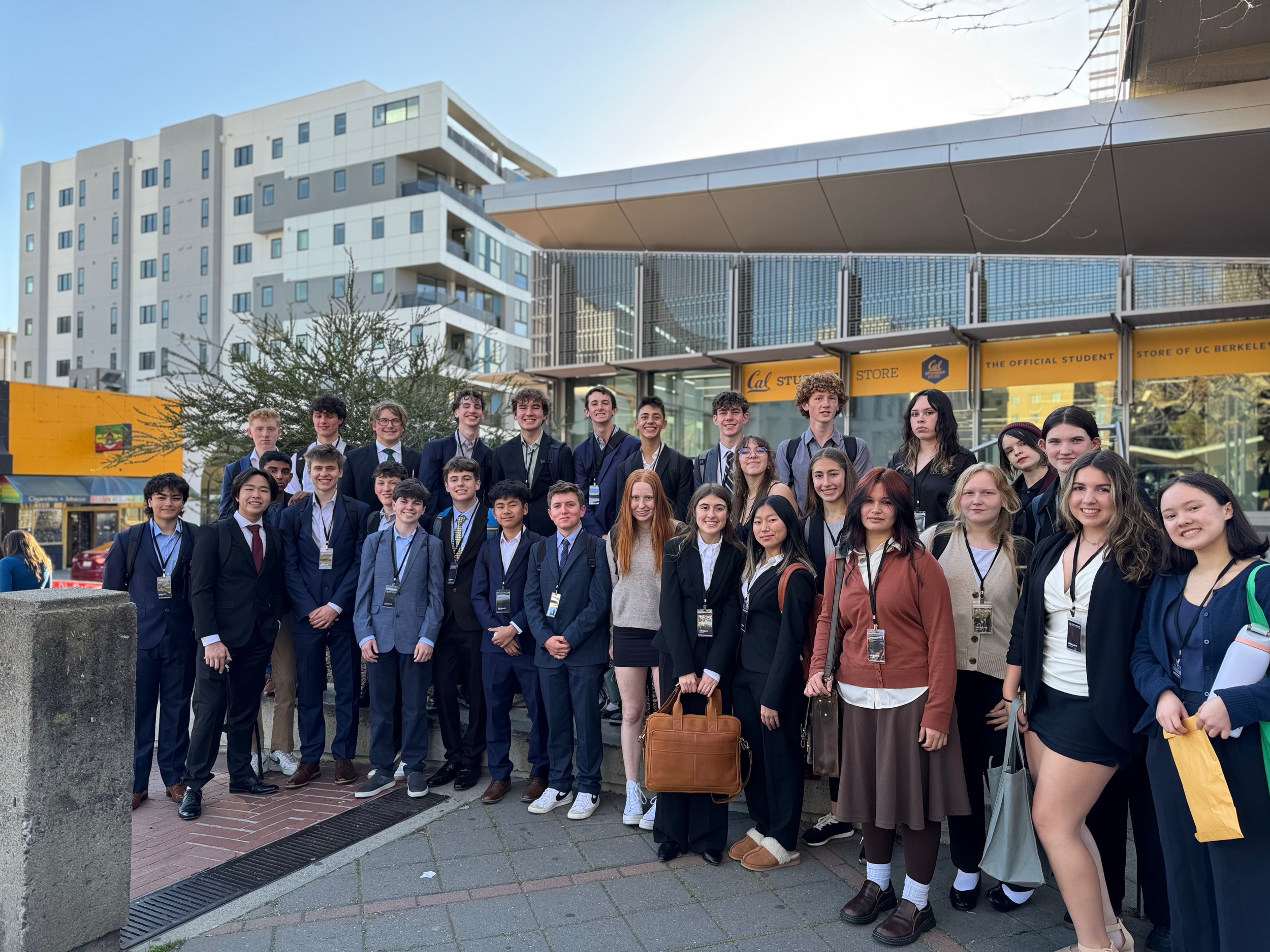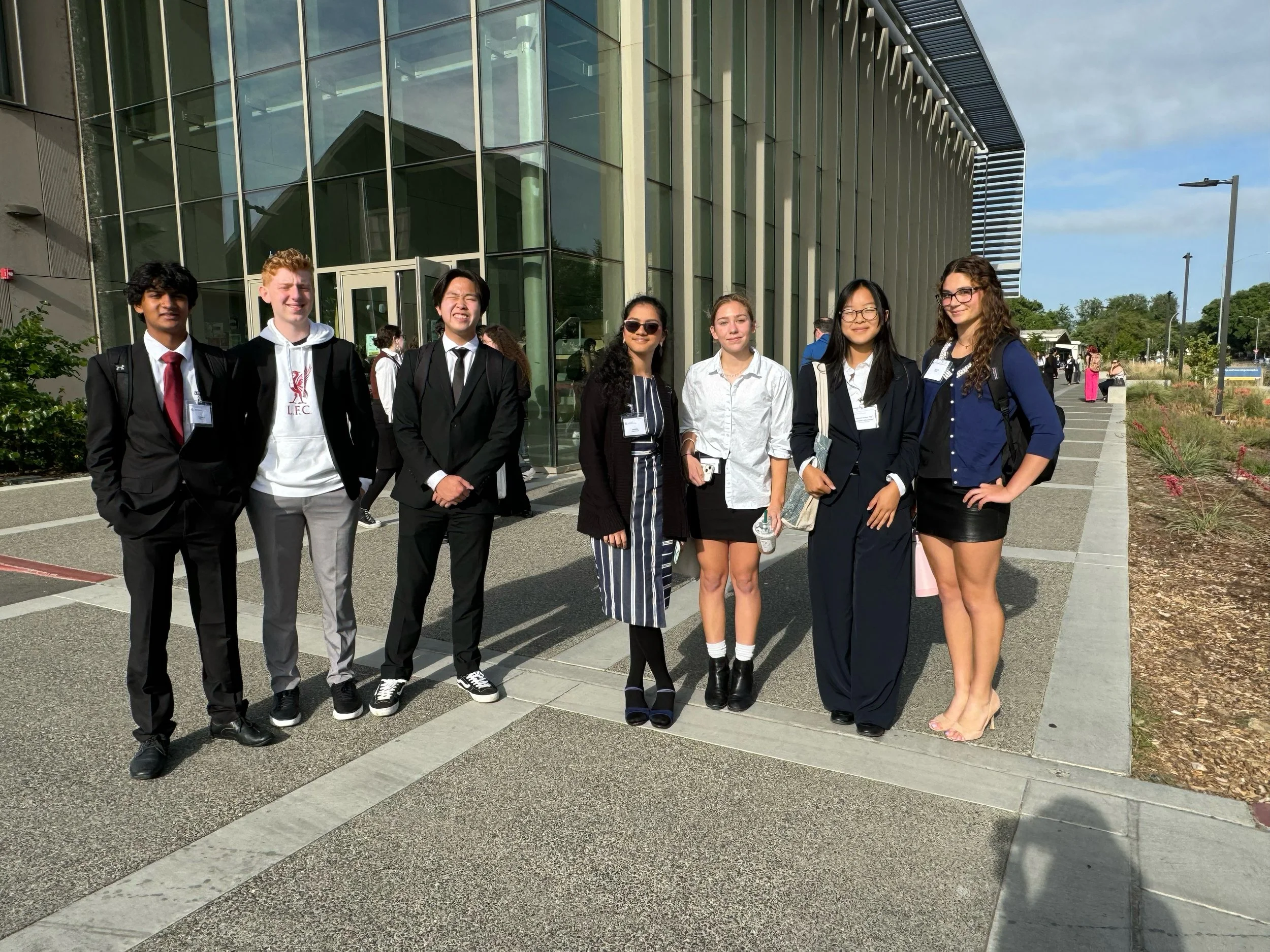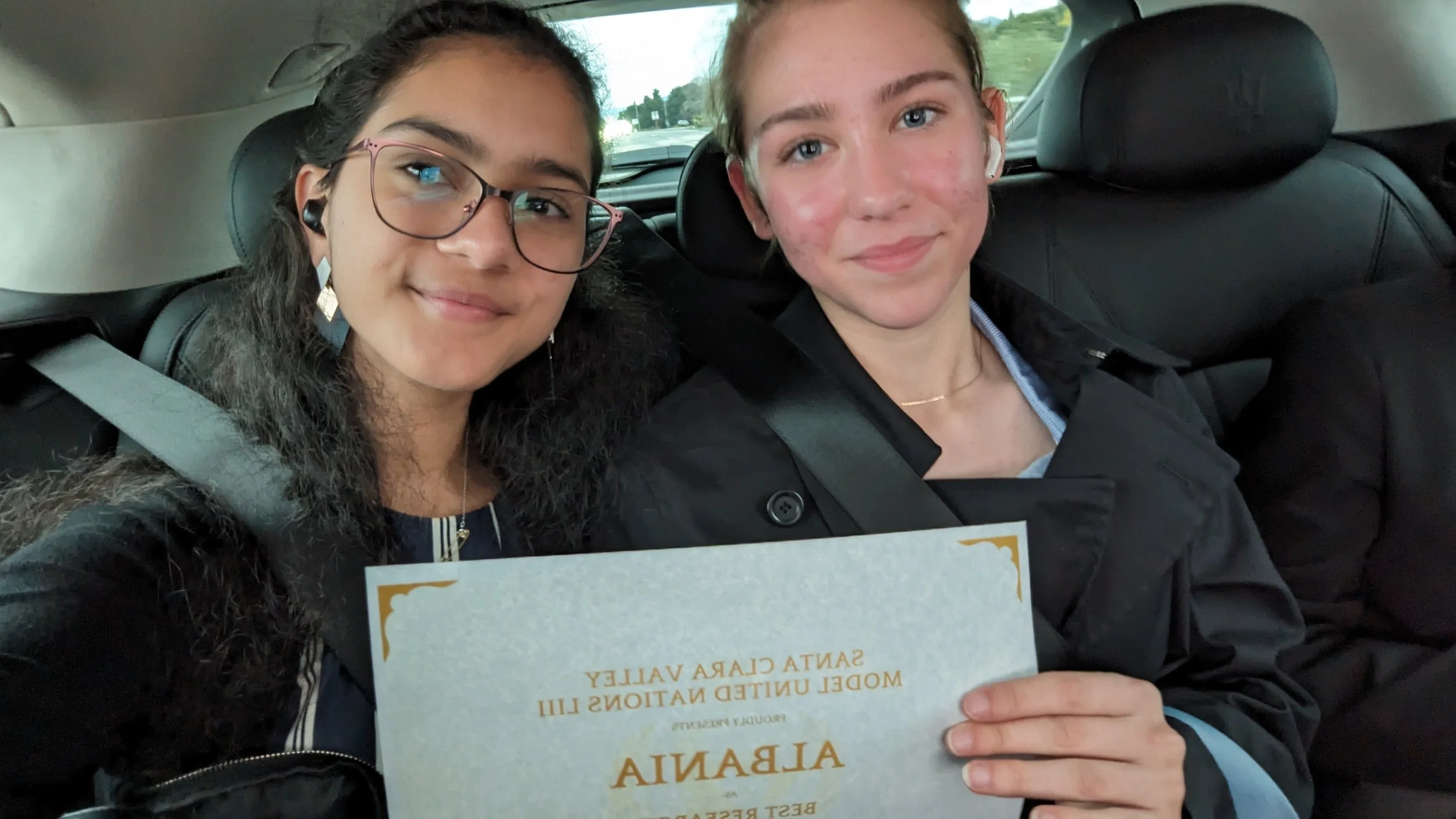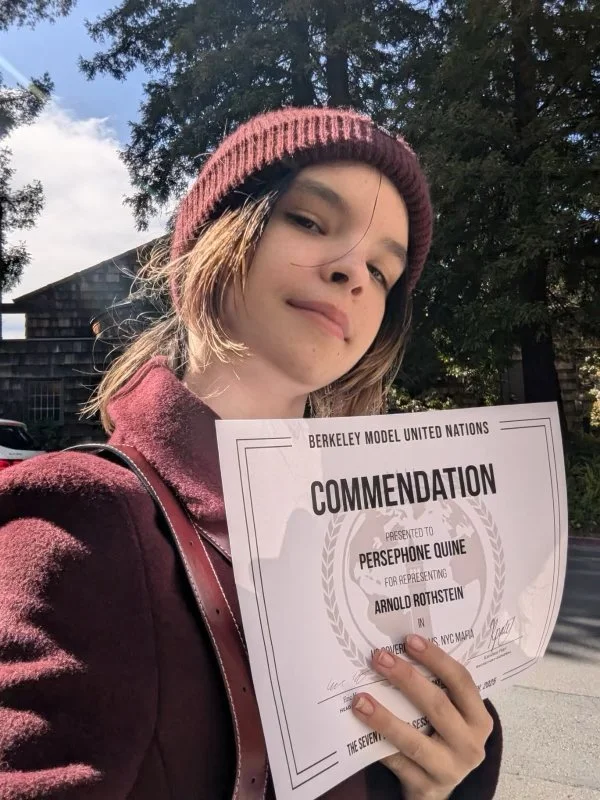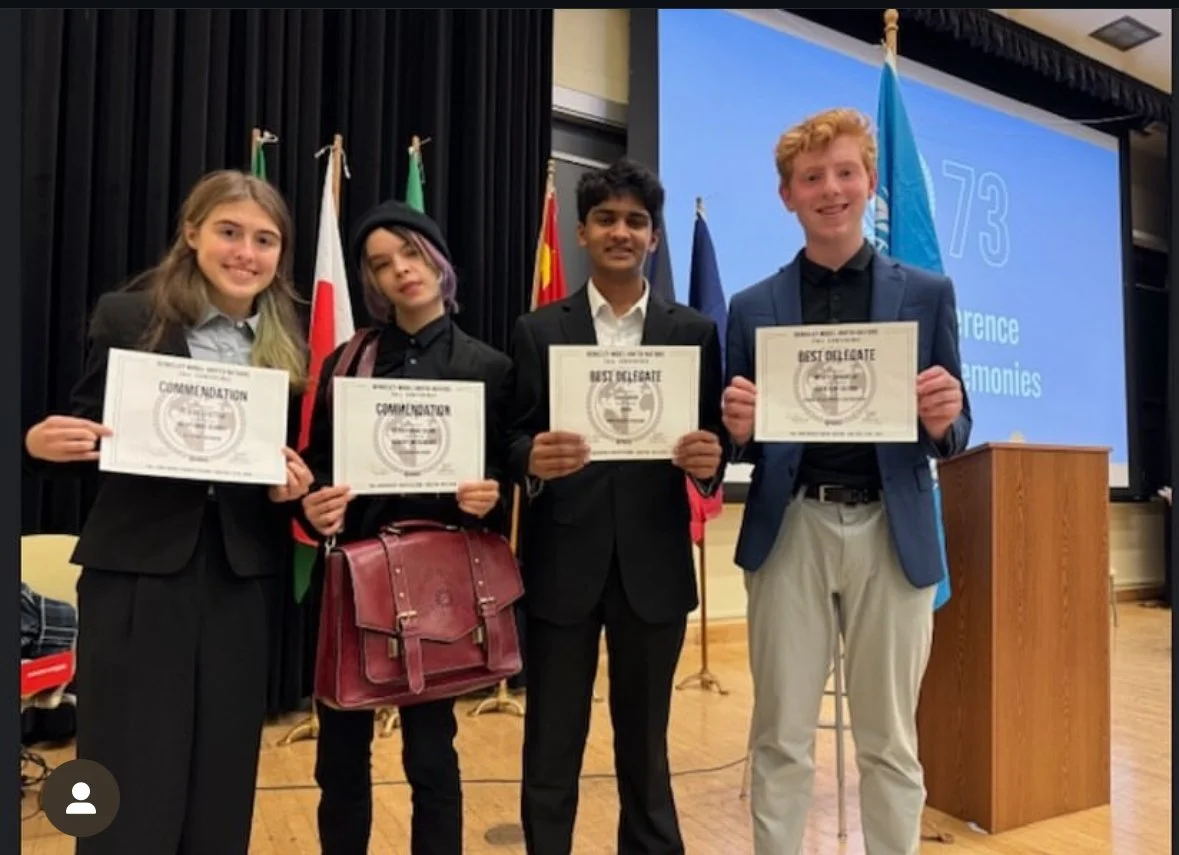Model UN Year in Review
By Mika Katznelson and Natalie Pecci, Staff Writers
Coutresy photos by Alvera Bamorya
A group of students dressed in suits and skirts stride through a college campus at eight in the morning, all on their mind is what to say in their opening speeches.
In this past year, the Acalanes Model United Nations (MUN) team successfully completed its first year as an academic team, and the new label brought many more people to the program.
“This year, we have about 40 people and this is the most we have ever had on our team in the past couple years. We have been barely pushing on 20, but this year so many people wanted to join the team. It has grown so much,” MUN team captain and junior Alvera Bamorya said.
With this switch, the program has also been able to grow and evolve from years past, especially with the new school funding.
“Now that we are fully funded this year, we have been able to expand our program immensely because that barrier to joining has been removed. We have managed to grow our competitiveness, grow our teaching programs and all around strengthen our passion for the program,” MUN team captain and senior Julia Kinion said.
This new growth of students who were willing to put in academic work outside their regular school responsibilities has aided in their success this year as well.
“I see much more engagement and a sense of community, every student has this kind of intrinsic goal to succeed and do well. That's been really exciting [and] I think it's added to the success of the team this year,” MUN Advisor Kristen Anderson said.
Further, the new mentor system appeared to be helpful to some new MUN members.
“This has really helped establish basic habits [like] research paper writing. We won one research award this year, whereas we didn’t win any last year,” MUN member and sophomore Max Kaufman said.
The MUN team has also been able to attend more conferences and more competitive conferences than in years past.
“Since we are a bigger delegation now, generally there are, at least in our school, more people per conference. Unlike last year, we went to Berkeley for a MUN conference, and that was probably the most competitive one we've been to,” MUN member and sophomore Ian Lin said.
The MUN team attended several conferences and workshops this year. Their first event was a delegate workshop hosted by Berkley on Oct. 12 followed by an online virtual team conference Oct 26. After that, they attended another conference Nov. 26. They then took part in the University of California Berkeley (UC Berkeley) MUN conference March 7 to 9.
“I had an incredible time at Berkeley MUN, it was my favorite conference that I have been to yet. The committee that I was in—the Interamerican court of Human Rights—was an incredibly fascinating subject matter and I was able to engage with the topic at a very high level surrounded by a small group of very eloquent, like-minded and educated peers,” Kinion said.
The MUN team received a total of six both individual and team awards over the span of two conferences.
“We got one award at our most recent UC Berkeley General Assembly conference. That's really a big deal because even though 32 students went to that conference, we won one award, but that is a highly competitive conference with students from all over the world there,” Anderson said.
Some feel that the length of the various conferences make their experience more difficult and challenging.
“We were [at Berkeley] for three days. … Generally it takes a really long time to get through conferences because a lot of people have to speak, but the amount of time that it takes is probably the biggest challenge,” Lin said.
Others, especially newcomers, experienced a hard time adjusting to the way MUN works.
“Another issue that we have faced in the past with Model UN is training and preparing our delegates for conferences. Model UN is a very idiosyncratic environment, and it is often very difficult to equip our delegates accurately to the specific nuances of debate and debate flow. You can teach out the material and present it during meetings, [but] it doesn’t really encapsulate what these delegates are going to be experiencing when they are doing the conference itself. We have been able to get rid of that issue by introducing a greater amount of simulations and training conferences,” Kinion said.
Despite these challenges, MUN has also created a positive impact on people’s lives and various skills.
“It has made me a stronger researcher, a stronger speaker, as well as just a stronger collaborator and someone who is more open to working with others and compromising. ... I have watched [members] become more confident, assertive, and capable of voicing their ideas in both a respectful but also a very clear manner,” Kinion said.
MUN also allows members to engage in and observe current events and issues.
“[MUN] helps me [learn] about certain humanitarian things happening around the world. Without it, I wouldn’t know about certain aspects of the globalization of food and other crises that are happening around the world that don't get enough attention,” MUN member and sophomore Maria Tislenko said.
MUN is looking toward the future and aiming to build on the growth of this season.
“It was a ton of fun this year. … Next year it should be longer and even better, because we are going to have a more established team and a stronger foundation from this year,” Kaufman said.

